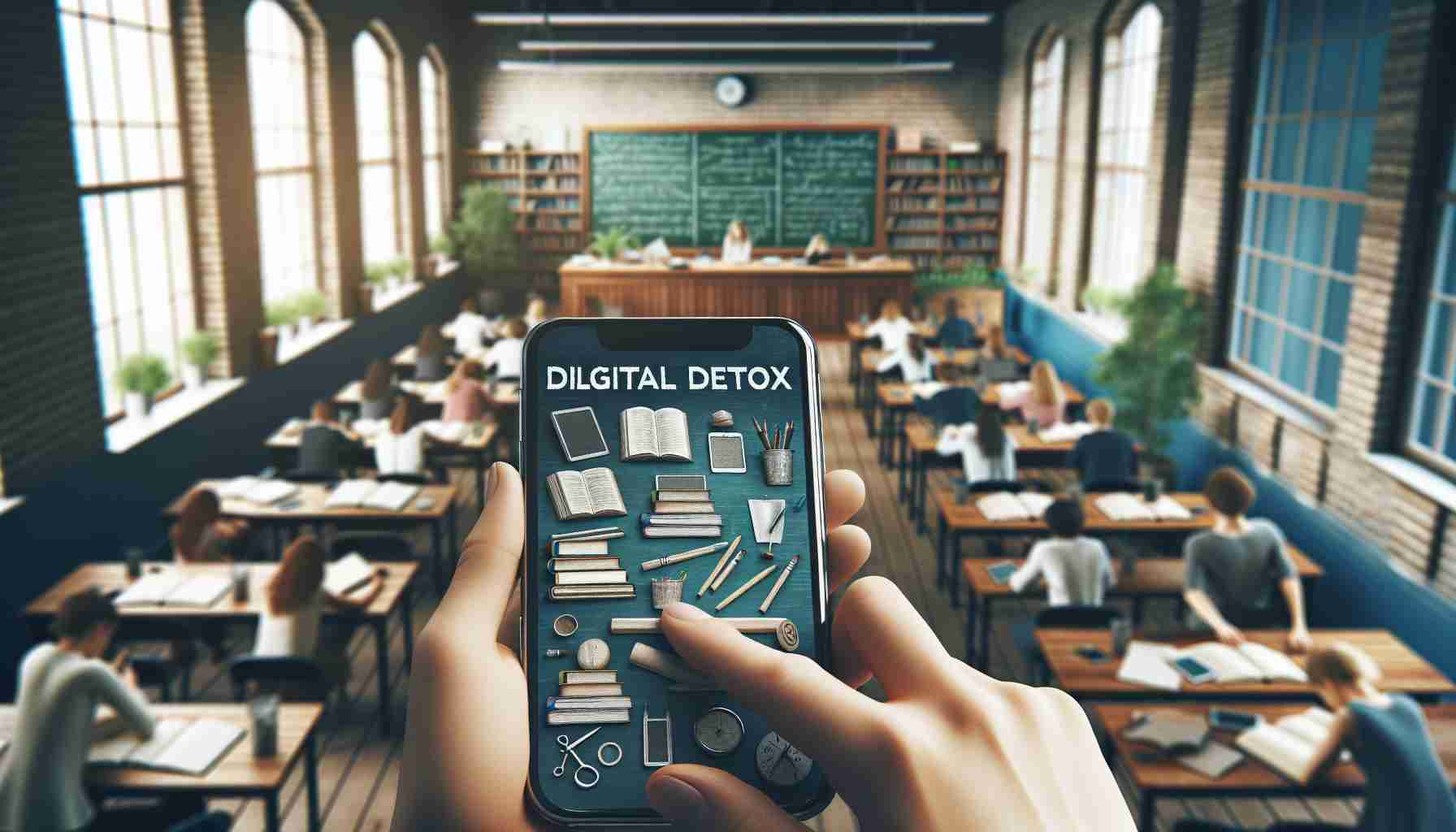In a bold move towards redefining the student experience, a renowned all-girls school located in Silicon Valley has embarked on a journey to help students reconnect with traditional learning methods by minimizing technology usage. **Castilleja School, known for its premium tuition and innovative approach, has implemented a month-long tech-free initiative designed to encourage students to step back from their devices.**
This past academic year, the school’s middle school head, Laura Zappas, introduced a dedicated week where students were required to set aside their smartphones, tablets, and laptops. **During this period, students resorted to pen and paper for note-taking, homework assignments, and even scientific experiments, which fostered a nostalgic return to fundamental learning techniques.**
Zappas highlighted how frequent access to devices often led to distractions, making it challenging for students to focus on their coursework. **With the introduction of “Tech-Free Week,” the aim was not just to eliminate screen time but also to stimulate critical discussions about the role of technology in their daily lives.**
Feedback from the initiative was promising, revealing that over 40% of students enjoyed enhanced concentration and minimized disruptions while working. **The success of this program has encouraged educators to consider a similar approach for high school students, fostering a culture that values both technology and personal engagement in learning.** Despite preparations requiring considerable effort, the initiative suggests the possibility of a balanced relationship with technology in contemporary education.
Reconnect with Learning: Tips and Life Hacks for a Tech-Free Experience
In today’s digital age, stepping back from technology can feel like a daunting task, particularly for students who rely on devices for their studies. However, as seen in the recent tech-free initiative at Castilleja School, embracing traditional learning methods can have profound benefits. Here are some tips, life hacks, and interesting facts to help you successfully unplug and reconnect with your educational goals.
1. Embrace Pen and Paper
Writing notes by hand can boost retention and comprehension, as research indicates that the cognitive process involved in handwriting is more beneficial than typing. Try using different colored pens to highlight key points, making your notes visually engaging and easier to study later.
2. Create a Tech-Free Zone
Designate a specific area in your study space where devices are not allowed. This tech-free zone can help you focus solely on your studies and decrease distractions. Consider using this space for reading, homework, or even group study sessions.
3. Rediscover the Joy of Reading
Without the constant lure of screens, delve into physical books, which offer a wealth of knowledge and can enhance your critical thinking skills. Create a reading list of both fiction and non-fiction that not only educates but also entertains.
4. Experiment with Mind Mapping
Use mind maps to visually organize information. This technique helps you harness creativity while learning, making it easier to remember concepts and see connections between different ideas.
5. Hold Discussions and Group Studies
Without technology to rely on, use group study sessions to discuss homework and tackle challenging subjects together. Engaging with peers can lead to a deeper understanding of the material, and the social element keeps study sessions fun.
6. Balance Learning with Physical Activity
Incorporate physical activity into your study routine. Take regular breaks to stretch or go for a walk. Exercise can help clear your mind and improve your focus when you return to your studies.
Interesting Fact: Did you know that studies have shown that taking breaks from screen use can help reduce eye strain and improve mental health? The rise of digital learning has led to increased claims of digital eye strain, so unplugging and enjoying a tech-free time can benefit both your eyesight and well-being.
7. Reflect through Journaling
Consider starting a journal where you can reflect on your daily experiences and learning outcomes. This practice encourages mindfulness and helps you track academic progress over time.
8. Prioritize Sleep
Reduced screen time, especially before bed, can contribute to improved sleep quality. A well-rested mind is more effective at absorbing new information. Aim for 7-9 hours of sleep to optimize your learning potential.
With the success of initiatives like Castilleja School’s “Tech-Free Week,” it is evident that re-engaging with traditional educational practices can lead to substantial improvements in focus and comprehension. If you’re considering implementing a tech-free experience in your own life or educational environment, these tips can guide you along the way.
For more insights and resources on promoting effective learning strategies, visit Education.com.
